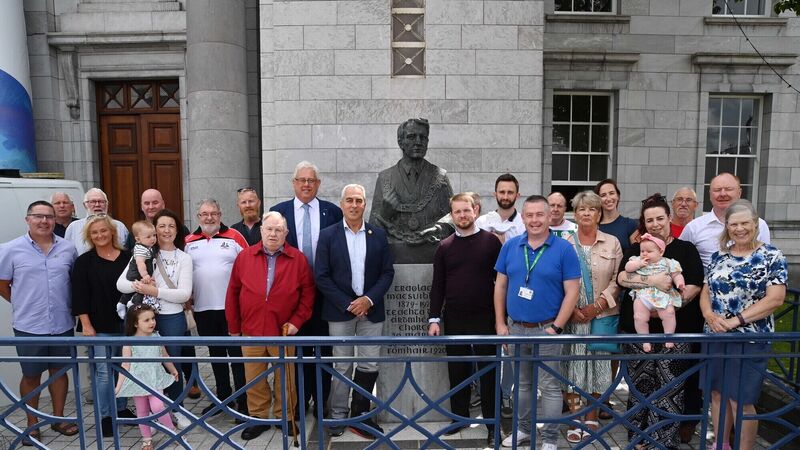Former IRA hunger striker urges public to attend commemoration in Cork

Local Sinn Féin organising committee members along with Pat Sheehan (left of statue), MLA and a former hunger striker in 1981. Picture: Denis Minihane.
A former IRA prisoner who survived 55-days without food during the 1981 H-block hunger strikes has urged people to attend a national commemoration in Cork.
The event will honour the sacrifice of those who gave their lives on hunger strike for Irish freedom over the last century.













